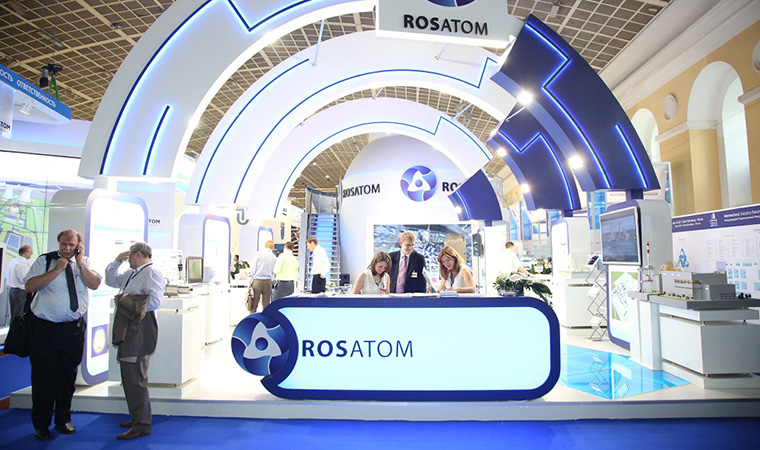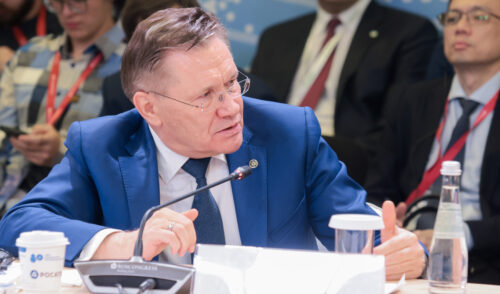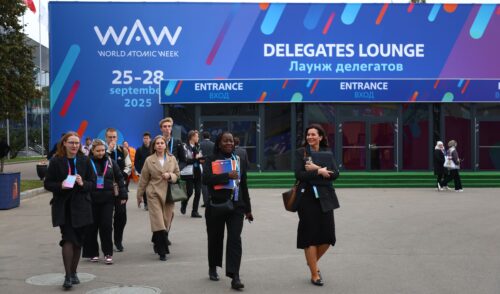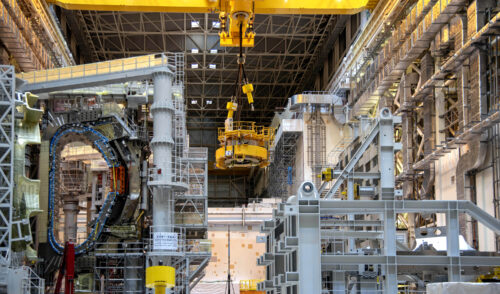
Nuclear power diplomacy
back to contentsRosatom is a global leader in terms of reactor units currently under construction abroad. As of today, Russia’s state-run nuclear corporation has 29 reactor units in its contract portfolio to be built in 12 countries across Europe, the Middle East and Asia Pacific. Rosatom is also the first in terms of reactor units under design.
Following 2014, its 10-year contract portfolio reached 101.4 billion US dollars and is expected to grow by half by 2020. The plan for the next 5 years is to win 30 to 40 reactor construction projects abroad. With over 300 billion US dollars in current orders, Rosatom boasts the largest nuclear portfolio in the world.
“Russia is moving to create a global nuclear power empire. <…> In consideration of the post-Fukushima stigma towards nuclear power, the notion of constructing a global nuclear empire might appear as initially bound for failure. Russia’s ambition to become the global provider of nuclear power appears poised to be successful,” the article says.
According to GRI, Rosatom’s strategy relies on its unique ability to provide end-to-end solutions, offering its international customers a comprehensive range of products and services.
“Over the past five years, Rosatom is systematically seeking out agreements and contracts with roughly 30 nations interested in the installation of nuclear power plants.” As authors of the article remind, countries that have signed nuclear agreements with Rosatom span across all regions of the world, and include strategically significant players such as Argentina, Egypt, Saudi Arabia, and Turkey.
GRI continues, “The ability of Russia to not only maintain pre-Fukushima nuclear power agreements but also broaden its international NPP roll-out is a clear signal that — from a global perspective — the reportedly “historic” decline of nuclear energy may be less dramatic than presently understood. Russia’s success in securing a litany of NPP contracts may be an early indicator that nuclear energy will rise in the medium-term along the same environmentally-minded tide as renewables.”
The article underlines that Rosatom’s presence on the global nuclear markets expands geopolitical influence. “The influence gained by Russia through each bilateral nuclear agreement should not be understated. First of all, the construction timeline for NPPs is typically long-term, ensuring that Russia will have a presence in any country it signs a nuclear contract with for a minimum of several years. In addition, Moscow has secured special comprehensive contracts with highly strategic countries like Turkey under the Build-Own-Operate (BOO) premise,” GRI explains.
Russian nuclear expertise will also be required for the maintenance and operation of Russian-designed nuclear stations.
“From this perspective, Russian-built nuclear power plants in foreign countries become more akin to embassies – or even military bases – than simple bilateral infrastructure projects. Western influence will subsequently be undermined in crucial ally states like Egypt, Turkey, and Algeria. At present, it appears that Russia is well-positioned to continue its expansive nuclear power diplomacy.”




